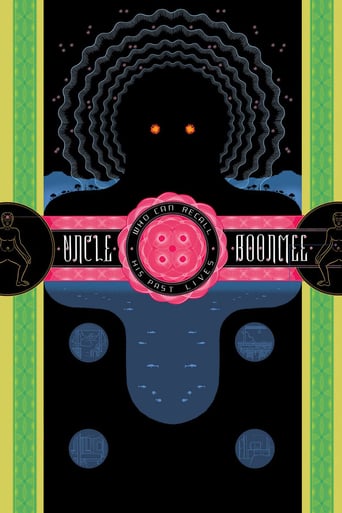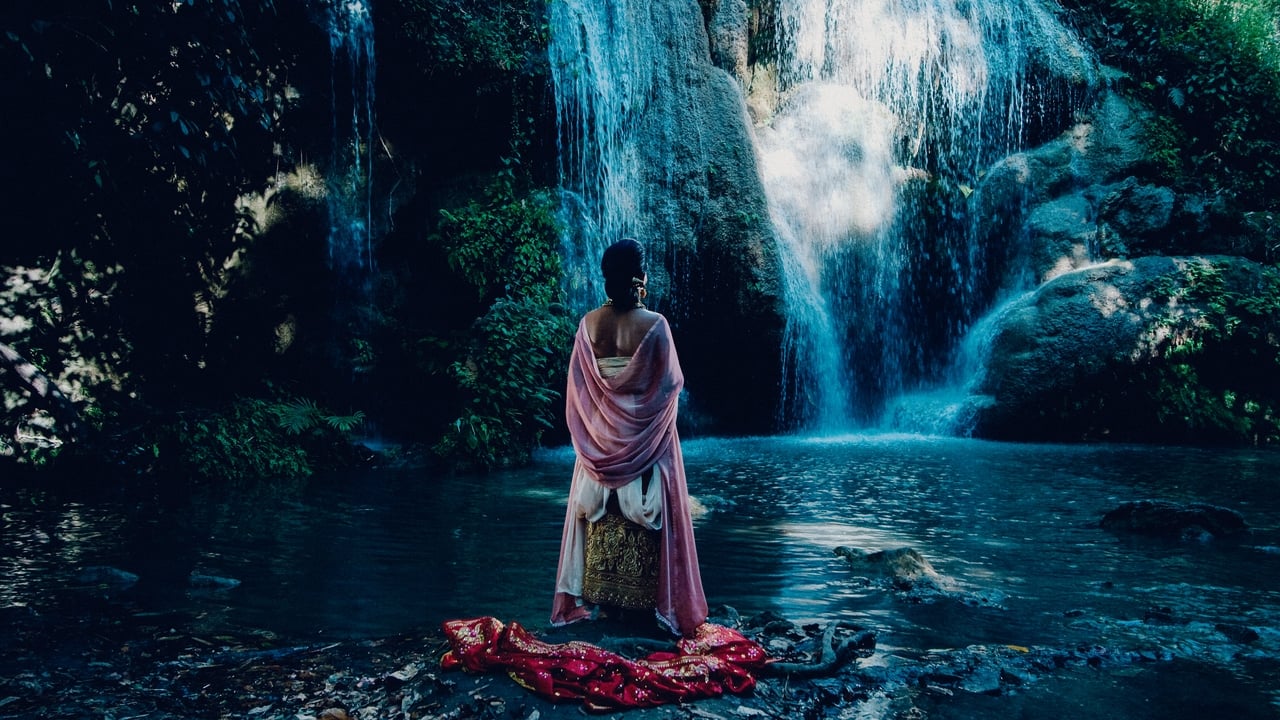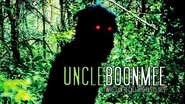sergelamarche
The effects were good enough. The film is moving along very slowly though. I'm not sure I got the end of the film. Two of them duplicated. Not making sense with the ghosts or anything. The past lives are a bit strange and not all that well marked. Unless his past life was one of the blind fishes in the pond in the cave. It was strange and supernatural but lacked sense.
Ilpo Hirvonen
"You don't have to understand everything," explains Apitchatpong Weerasethakul about his Palm d'Or winning, enigmatic and ambiguous "Uncle Boonmee Who Can Recall His Past Lives" (2010) in a 2010 interview with The Guardian. This remark by the author of the film is very simple but even more relevant as such since it is, I believe, precisely the unconscious demand for clarity and unity, a rational need to understand which leads many spectators astray when it comes to Weerasethakul's cinema. The torment of understanding is what ruins the viewing experience for far too many, making it harder for them to see the simple beauty of films like "Uncle Boonmee".In all its simplicity, "Uncle Boonmee" is a story about a dying man. His family and other close ones take care of him as he requires daily doses of dialysis. On one night, his dead wife appears as a ghost to chat with him and his caretakers at a serene veranda only to be followed by the unexpected arrival of his long lost son who has now turned into an ape with glaring red eyes. A surprisingly calm discussion between those involved takes place, including a few flashback sequences, which slowly lead the way to a new day, a journey to a cave, and finally a detachment from this story to another. There are no spoilers here because they do not exist in the Weerasethakul canon. His films are less about stories and more about images. The gulf between those who love Weerasethakul and those who despise him begins in this division: one tries to find a coherent and consistent story in the images, explaining objects in the screen space as symbols for something much clearer and less vague, while the other tries to embrace the images themselves not as symbols but as what they are, images. One could think of it as cinematic music, a peculiar language of the rhythm which does not call for conceptual understanding but a pre-reflective reception. In addition to Weerasethakul's style, consisting of long takes, slow editing rhythm, large shot scales, lack of non-diegetic music, and a relentless use of ellipsis, which might create discontent in some spectators, there is also a more thematic, or "content-oriented," explanation for this discontent. "Uncle Boonmee" is about crossing boundaries. Halfway into the film, one is ready to accept a dialogue between people and ghosts as natural or a sexual encounter between a princess and a fish as nothing out of the ordinary. Conceptual distinctions into categories such as past and present, man and woman, animal and human, nature and culture, reason and emotion, dream and reality coalesce and disappear. This is why they will not serve a spectator trying to find a conceptually understandable story in the pervasiveness of the images. One could see the circularity of the narrative as a reflection of reincarnation, but even this seems too categorical. To me, there is only a fragmented narrative without clear boundaries unfolding like a beautiful poem without the burden of words. Hopefully this has not come off as an attack. The foregoing discussion has been nothing but a modest attempt to open streams of curiosity. I have tried to explain the division between those who admire and those who despise "Uncle Boonmee". I have located the latter's discontent in Weerasethakul's unique style (using slowness and serenity to create cinematic lyricism which challenges our conceptual understanding) and the film's thematic treatise on crossed boundaries (combining purported conceptual distinctions into one to create a non-linear narrative which challenges our conceptual understanding). Clearly this is not everything, but it is "everything" in less than one thousand words. To Weerasethakul, the discontent of some means nothing but the success of his cinema: "if I make a film that divides the audience, I feel like that's a certain level of success," Weerasethakul tells The Guardian. In the spirit of this remark, there is nothing left to say other than a request to give Weerasethakul's cinema a chance rather than condemning it on the basis of one's own purported categorical distinctions. Like in the films of Ozu or Bresson, the objects in the screen space are not symbolic; the images themselves are what count -- and it is those images where Weerasethakul's cinema returns to.
maxmiller4
This film is about all life everywhere right now. All of us. The other reviewers are right about Uncle Boonmee reliving many of the memorable occurrences and changes in his life, as shown by historically-set allegories. But the main thrust of this movie is the end.The director/author/persona/protagonist (Boonmee in the previous scenes), having died, finds his story fades away and is replaced with a clearer, more basic level of reality. He has always been a quiet Thai kid, dutifully training at a monastery. He is calm and focused enough to see outside of his own sphere. But he has this self control only because his mother bought him the freedom to do this, by sending him to the monastery. It is his sensitivity that allows him to see life in terms of stories about himself and others, and his sensitivity is apparent when he talks about his feelings toward the monastery. He also moves and showers mechanically because he is still, at base, afraid of this world.When he gets ready to leave the hotel room, he realizes that he has left a version of himself, a "scene" from his life, in that room. It shocks and dismays him that the thread of life is so flimsy, and his identity is so subjective. The persona, or viewer, is dismayed to realize that the base level reality feels fractured even more than the myths and legends.When he and his mother go out to the restaurant to connect more, they wind up not talking at all. And while they sit in a booth, more disconnected than ever, he hears heartfelt, sentimental, music playing from a computer where a similarly zombie-like man sits, staring blankly.This song is the denouement. It expresses all of the love, life, happiness, and soul that the modern man has tried to seek, quantify, and trap in a bottle (computer), while our species has completely lost the ability to live those themes in reality. The people in the restaurant listen to a beautiful, soulful, human song and it doesn't even inspire them to look at each other.The final shot is back in the hotel room where another version of himself is also disconnected from his family, this time without even anything "fun" going on. The family unit remains exactly as disconnected in this setting as in the other. In the booth, the mother sees her son's discontent with the real, modern world, but has no answers for him. In the hotel room, she doesn't even notice it enough to look at him.This movie is deeply sad and regretful of modern (future) society in all its forms: technology, distraction, the sharp decline of pure human interactions. If you will remember the beginning of the movie, primitives in a field at dusk, the family unit is so close to each other that the camera doesn't even need to focus on them or pick up their conversation. The cow walking away is the most interesting (i.e. distracting) thing that happens in the scene. It takes them a while to notice this, and even when they do they fail to notice spirits walking in the woods.Because they are happy, and just aren't pressured to care.Wild.
Andy Steel
All the performances are very good (with my usual caveat that it's hard to judge a performance in a language alien to me). I loved the way the characters all took the appearances of ghosts in their stride; like it's an everyday occurrence. This gave the film a very natural flow that added to its magic. I don't profess to understand it all by any stretch of the imagination, but it was well made and I loved the ending
that was really unexpected (no clues here).SteelMonster's verdict: RECOMMENDEDMy score: 7.7/10You can find an expanded version of this review on my blog: Thoughts of a SteelMonster.


 AD
AD




